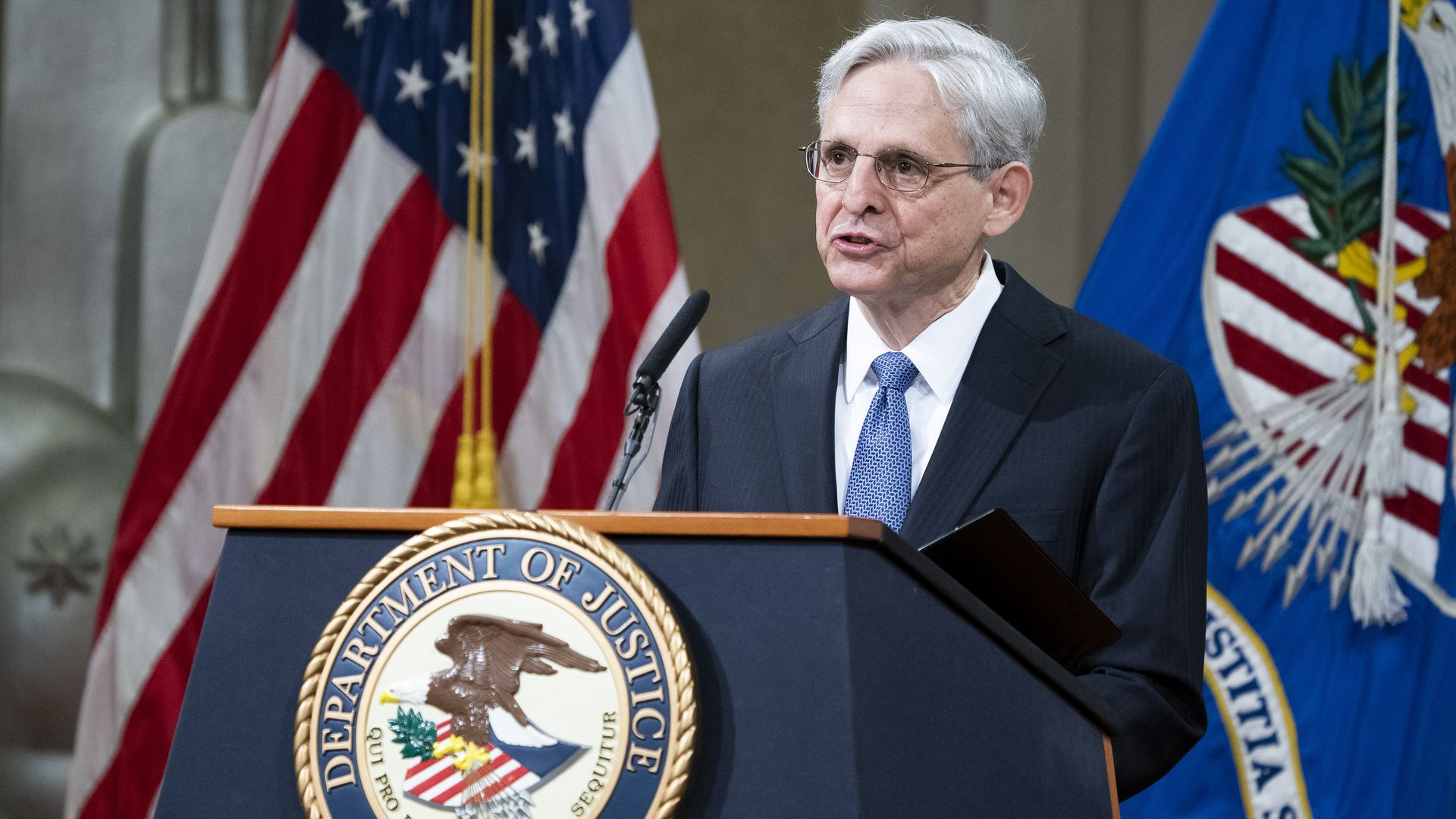Justice Department to stop seizing reporter records
Add Axios as your preferred source to
see more of our stories on Google.

Attorney General Merrick Garland speaks at the Department of Justice in Washington, D.C., March 11, 2021. Photo: Kevin Dietsch/UPI/Bloomberg via Getty Images
The Justice Department will no longer secretly seize reporters' records in leak investigations, following revelations that the Trump administration obtained phone records of New York Times, Washington Post and CNN reporters.
The state of play: "Absolutely, positively it's wrong. It's simply, simply wrong. ... I will not let that happen," President Biden told CNN in May of the practice.
"Going forward, consistent with the President’s direction, this Department of Justice — in a change to its longstanding practice — will not seek compulsory legal process in leak investigations to obtain source information from members of the news media doing their jobs."— the DOJ said Saturday
On Friday night, the N.Y. Times reported that Justice put a gag order on the newspaper's executives — beginning in the Trump administration and continuing briefly under Biden — during a secret legal battle to obtain the emails of four Times reporters.
- A letter this week "disclosing the seizure of phone records involving the Times reporters — Matt Apuzzo, Adam Goldman, Eric Lichtblau and Michael S. Schmidt — had hinted at the existence of the separate fight ... over email."
What they're saying: "[N]o one at the White House was aware of the gag order until Friday night," White House press secretary Jen Psaki said Saturday, adding: “the issuing of subpoenas for the records of reporters in leak investigations is not consistent with the President’s policy direction to the Department.”
Justice Department spokesman Anthony Coley said: “in a change to its longstanding practice [the DOJ] will not seek compulsory legal process in leak investigations to obtain source information from members of the news media doing their jobs.”
- “The department strongly values a free press, protecting First Amendment values, and is committed to taking all appropriate steps to ensure the independence of journalists.”
Of note, via AP: The DOJ's statement did not indicate whether the department plans to continue conducting leak investigations without obtaining reporters’ records. It also did not specify who is characterized as a member of the media per the policy nor how broadly the protection would be applied.
The bottom line: "Even so, it marked a startling turnabout concerning a practice that has persisted across multiple presidential administrations," AP writes.
